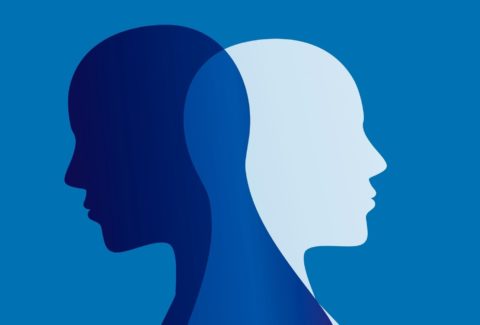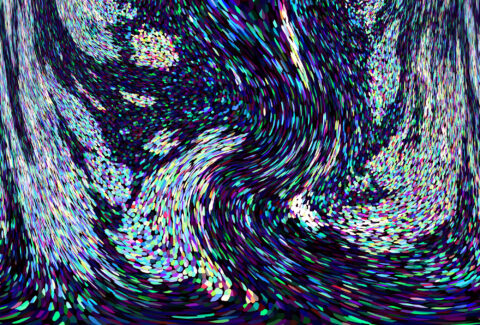Individual Freedom and Existential Therapy: A Path to Authentic Living
Introduction
The quest for individual freedom has long been a central theme in philosophy, psychology, and human existence. Existential therapy[1], rooted in existential philosophy, offers a unique lens through which to explore and reclaim this freedom. It emphasizes the human capacity for choice, the responsibility that accompanies it, and the courage required to live authentically. By addressing fundamental questions about existence, purpose, and personal agency, existential therapy empowers individuals to confront the limitations and possibilities of their freedom.[2]
Freedom in the Existential Framework
Existential philosophers such as Jean-Paul Sartre[3], Søren Kierkegaard[4], and Martin Heidegger[5] argued that human beings are fundamentally free to shape their lives. Sartre famously stated, “Man is condemned to be free,” highlighting the paradoxical nature of freedom—it is both a privilege and a burden. This freedom demands that individuals take ownership of their choices, even in the face of societal, cultural, and internal constraints.
Existential therapy integrates these ideas, viewing freedom as the cornerstone of human existence. Irvin Yalom[6], a leading figure in existential psychotherapy, described freedom as one of the “givens” of life. He asserted that recognizing our freedom can be both liberating and anxiety-inducing, as it forces us to confront our role in shaping our destiny.
Choice, Responsibility, and Authenticity
Existential therapy posits that freedom is inseparable from responsibility. When individuals recognize their freedom, they also acknowledge their responsibility for the consequences of their choices.[7] Viktor Frankl[8], an existential therapist and Holocaust survivor, illustrated this in his seminal work, Man’s Search for Meaning. Frankl argued that even in the direst circumstances, individuals retain the freedom to choose their attitude and response, thereby asserting their humanity.
Authenticity is another central concept in existential therapy. It involves living in alignment with one’s values, desires, and unique potential rather than succumbing to external pressures or inauthentic roles. Existential therapy helps individuals uncover the ways they may avoid or deny their freedom—through self-deception, societal conformity, or fear of uncertainty—and guides them toward a more authentic existence.
The Role of Existential Therapy
Existential therapy addresses the tension between freedom and limitation.[9] While it acknowledges external constraints such as social norms, biological factors, and existential realities like death and suffering, it emphasizes that individuals retain the capacity to choose how they engage with these constraints.
Therapists using this approach facilitate exploration of the following key questions:
- What does freedom mean to you?
- How do you exercise your freedom in daily life?
- In what ways might you be avoiding responsibility for your choices?
Through this exploration, individuals gain clarity about their desires, values, and goals, enabling them to live more fully and intentionally.
Applications of Existential Therapy
Existential therapy is particularly effective in addressing issues such as:
- Anxiety and Fear: By reframing existential anxiety as a natural response to freedom and uncertainty, therapy helps individuals harness this energy for growth.[10]
- Life Transitions: Existential therapy aids individuals in navigating change by focusing on their ability to adapt and choose meaningful paths forward.
- Purpose and Meaning: It helps individuals clarify what gives their life purpose, fostering resilience and fulfillment.[11]
Conclusion
Individual freedom is both a challenge and an opportunity. Existential therapy provides a compassionate, thought-provoking framework for embracing this duality. By helping individuals confront their choices, take responsibility, and live authentically, it offers a path toward personal empowerment and fulfillment.
In a world that often pressures conformity and external validation, existential therapy reminds us of our intrinsic freedom and the profound responsibility to live as our truest selves.
[1] Vontress, Clemmont E. “Existential therapy.” Contemporary psychotherapies for a diverse world. Routledge, 2012. 131-164.
[2] Miller, Jason. “Attaining freedom in existential group therapy.” American Journal of Psychoanalysis 38.2 (1978): 179.
[3] Webber, Jonathan. The Existentialism of Jean-Paul Sartre. Routledge, 2009.
[4] Rempel, Gerhard. “Soren Kierkegaard and existentialism.” (1959).
[5] Lowith, Karl. “Heidegger: problem and background of existentialism.” Social Research (1948): 345-369.
[6] Berry-Smith, Stephen Frederick. Death, freedom, isolation and meaninglessness and the existential psychotherapy of Irvin D. Yalom. Diss. Auckland University of Technology, 2012.
[7] Varga, Somogy. “Existential choices: to what degree is who we are a matter of choice?.” Continental Philosophy Review 44 (2011): 65-79.
[8] Esping, Amber. “Autoethnography and existentialism: The conceptual contributions of Viktor Frankl.” Journal of phenomenological Psychology 41.2 (2010): 201-215.
[9] Todres, Les. “Experiential–Existential Therapy: Embodying Freedom and Vulnerability.” Existential Therapy. Routledge, 2012. 67-80.
[10] Cooper, Mick. “Between Freedom and Despair: Existential challenges and contributions to person-centered and experiential therapy/Zwischen Freiheit und Verzweiflung: Existenzielle Herausforderungen an Personzentrierte and Experienzielle Therapie—einige Beiträge/Entre la libertad y la desesperación: cuestionamientos y contribuciones existenciales a la terapia centrada en la persona y experiencial.” Person-Centered & Experiential Psychotherapies 2.1 (2003): 43-56.
[11] Akbari, Moslem, et al. “How existential therapy may help people who are suicidal.” European Journal of Psychotherapy & Counselling 24.4 (2022): 419-433.







